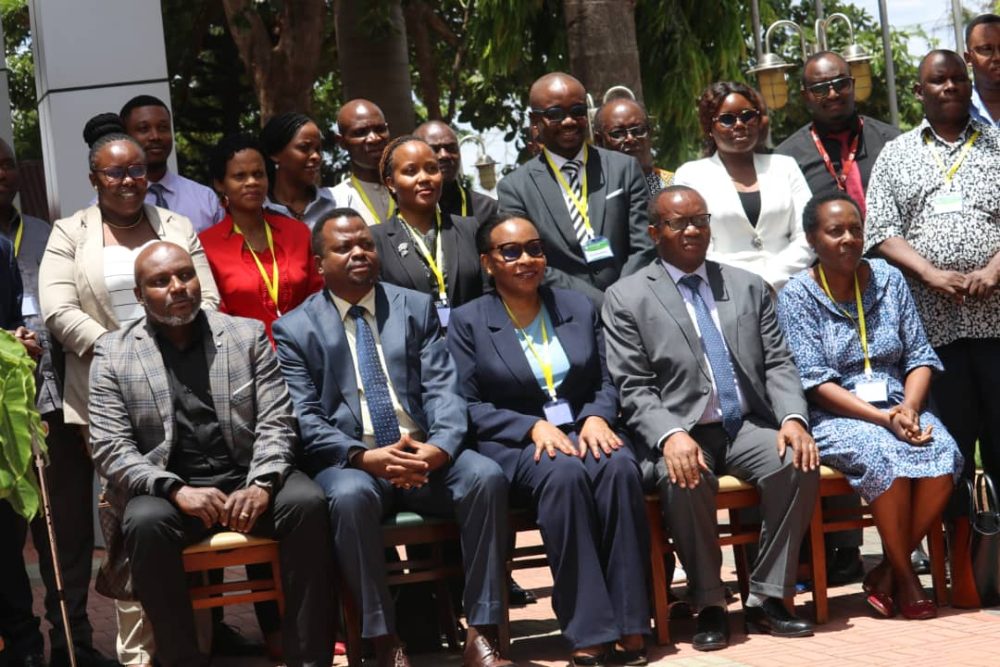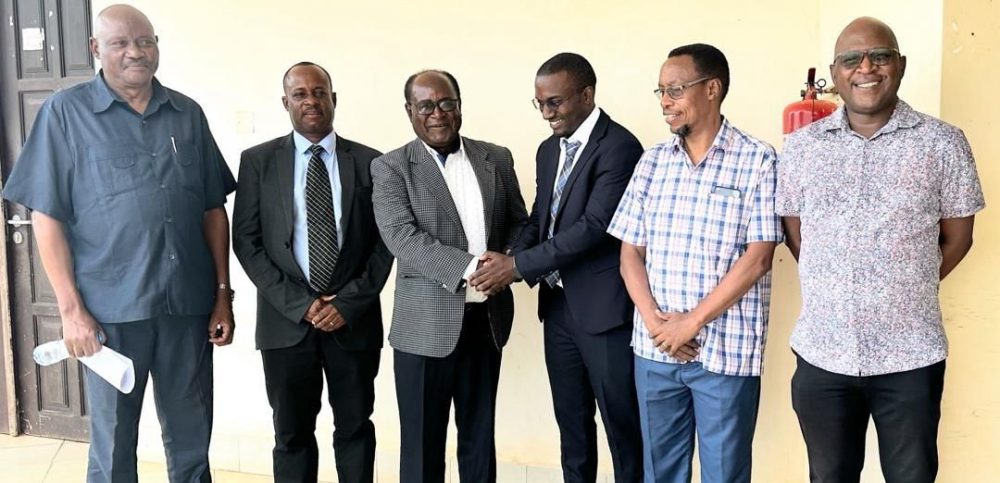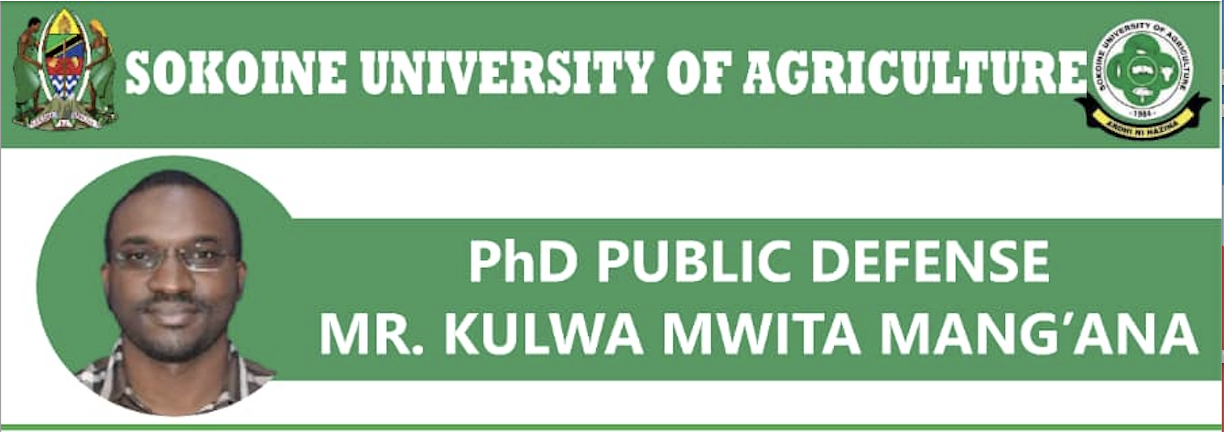APRA TANZANIA
INFLUENCING ACTIVITIES
MEDIA WORKSHOP REPORT – ON AGRICULTURAL COMMERCIALISATION IN TANZANIA

INTRODUCTION
APRA-Tanzania research team conducted a workshop for journalist on 21st October 2020, as one of avenue for disseminating the research findings. About 30 journalist from 24 various media houses attended the workshop. The core aim of the workshop was to share the research findings to journalist as one of the biggest stalk holders through which the massages from research findings can get to many other stalk holders quickly and broadly. The aim of the research is to understand the impact of agricultural commercialization of rice and sunflower value chains in Morogoro and Singida region respectively and what are the drivers of commercialisation to these value chains.
The workshop was conducted at Sokoine University of agriculture in Morogoro municipality at the institute of Continuing Education (ICE). A total of 38 people attended the workshop in which 30 were journalist and 8 were the Tanzania APRA researchers.
THEME
The theme of the workshop was “Impact of agricultural commercialization on the livelihoods and women empowerment of the agrarian communities of Morogoro and Singida Region”.
Opening of the Workshop
The country lead of APRA project Prof. Aida Isinika opened the workshop by welcoming all the participants; she introduced the APRA to the Journalist by a Power point presentation in which she stated the aim of the project of analysing pathways that lead to inclusive commercialisation for the rice and sunflower value chains in Morogoro and Singida region respectively in Tanzania. She also described more that APRA is also operating in other five African countries apart from Tanzania which includes Ethiopia, Malawi, Zimbabwe, Ghana and Nigeria; and the programme is funded by DFID. She also kept plainly the methodology and procedures which were used by APRA in doing research.
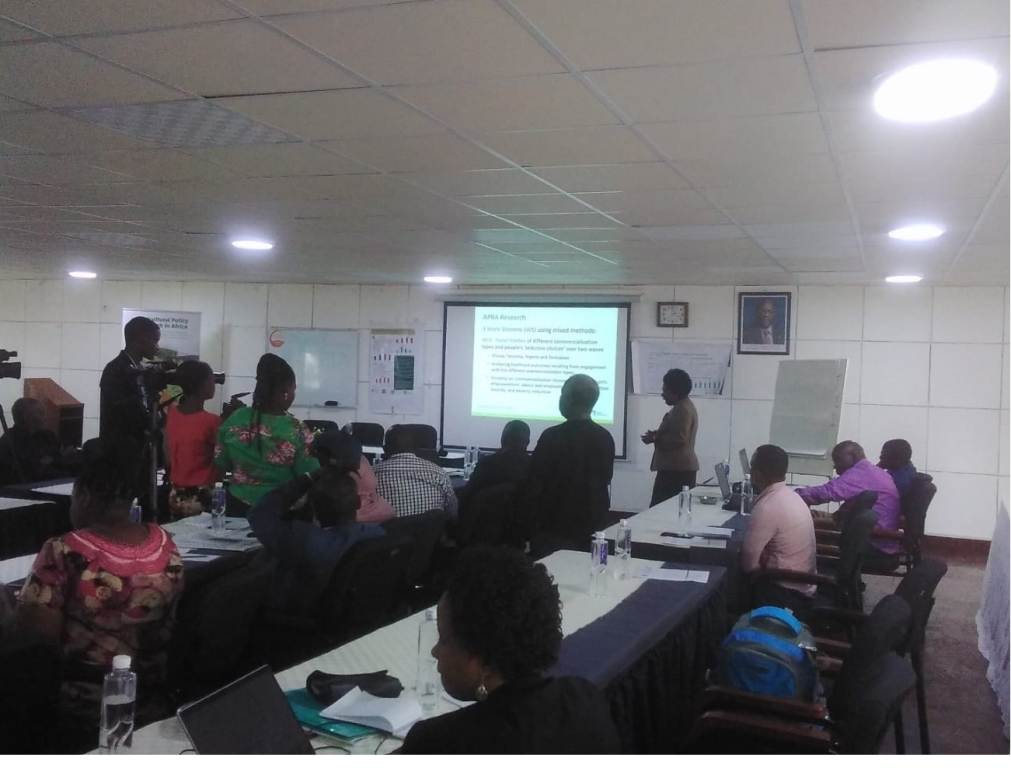
APRA Country lead of Tanzania, Prof A. Isinika from COEBS, Opening the media workshop by introducing the project
Presentations made
- Effect of rice commercialisation and Livelihoods
The country lead Prof. Isinika narrated the influence of commercialization on livelihoods and clarify in detail how commercialisation of rice and sunflower happening, what are the drivers, and its impact on livelihoods to Medium scale farmers, small scale farmers, SRI farmers, Female and Male farmers. She also pointed out the role that electricity plays in enhancing rice and sunflower commercialisation.
- The role of Livestock on rice commercialisation and effect on livelihoods of smallholder rice farmers in Kilombero valley, Tanzania.
Which role does the livestock play on rice commercialisation was presented by Prof. NtenguaMdoe, He further explained the existing relationship between the tillage means used with the commercialisation level attained and the impact they caused on the food security of the actors.
- Yield and Commercialization Effects of SRI Interventions in Mngeta, Kilombero District, Tanzania
The importance of System of rice intensification (SRI) was also presented by Dr.DevotaMosha, she clarified the impact of yield as the results of using SRI on commercialization and Food security to farmers.
- Youth participation in commercial rice farming
The findings clearly show that youth are benefiting from agriculture, and measures should be taken to enable them to move more step further as this will help to solve the problem of unemployment to youth. These were said by NtenguaMdoe in his second presentation that revealed the participation of youth on rice commercialisation.
- Yield and Commercialization Effects of SRI Interventions in Mngeta, Kilombero District, Tanzania
The importance of System of rice intensification (SRI) was also presented by Dr.DevotaMosha, she clarified the impact of yield as the results of using SRI on commercialization and Food security to farmers.
- Youth participation in commercial rice farming
The findings clearly show that youth are benefiting from agriculture, and measures should be taken to enable them to move more step further as this will help to solve the problem of unemployment to youth. These were said by NtenguaMdoe in his second presentation that revealed the participation of youth on rice commercialisation.
- Livestock and sunflower commercialisation in Singida region and implications on poverty and inclusion
Dr. Christopher Magomba put clear the enhancement that made by livestock on the sunflower commercialisation and its impacts on the livelihood of farmers in Singida region. He pointed out that owner of livestock cultivate significantly more land than those who do not own livestock, and their participation in commercialisation farming is 10% more compare to those who do not own livestock. Farmers who do not own livestock found to be poorer that their counterparts who own livestock
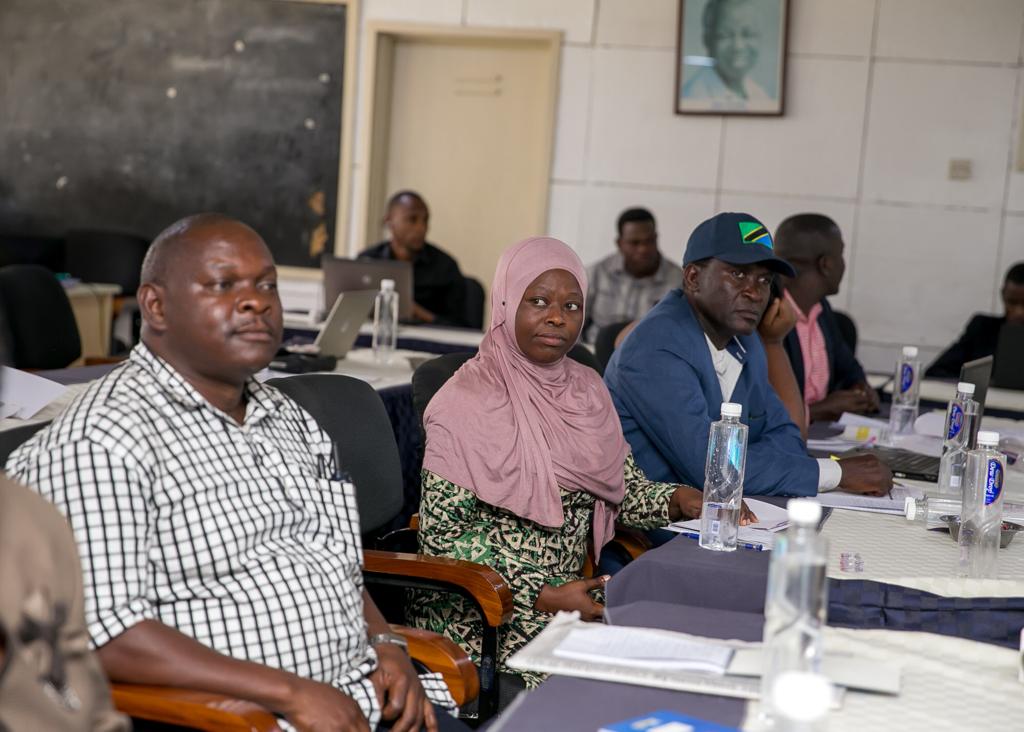
Participating journalists from various local and international media outlets
- Sunflower commercialisation and livelihood pathways in Singida region: The danger of a single story
- The influence of commercialization on women empowerment: A case of rice and sunflower commercialization in Morogoro and Singida regions
How rice and sunflower commercialisation have benefited women particularly in raising their decision-making level was presented by Dr.DevotaKilave. She reported that commercial farming has raised the women empowerment.
- The role of farmers and local processors for the commercialization of sunflower in Tanzania
- The country lead once again explained the political economy of the sunflower, and revealed the steps and measures to be taken to make sunflower commercialisation inclusive.
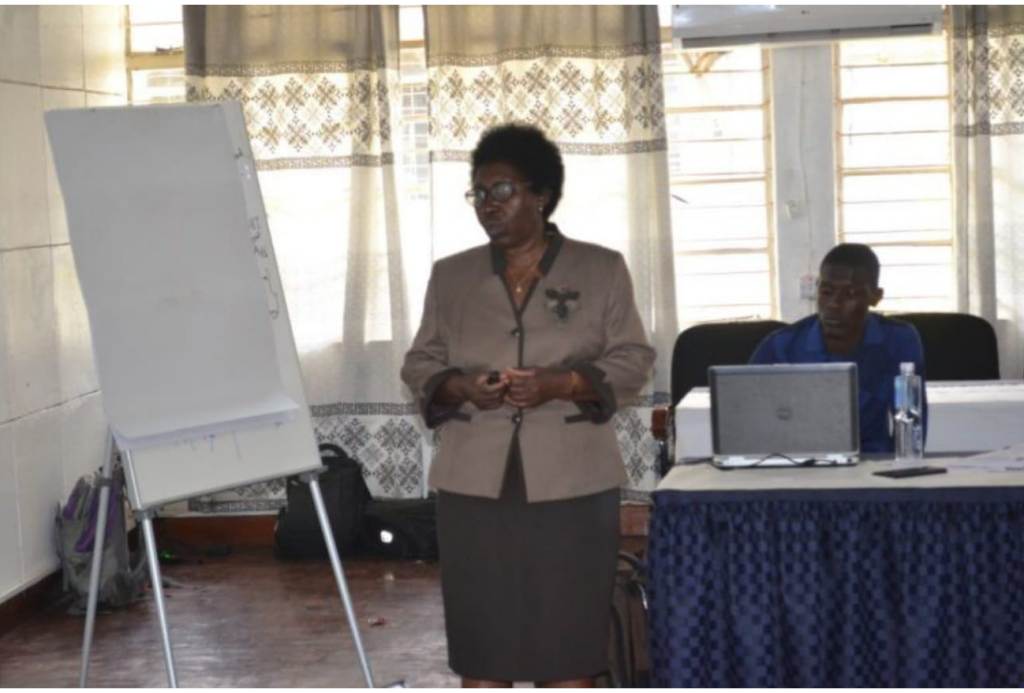
Prof. Isinika One of the APRA researcher give accounts on the impact of commercialisation on livelihood
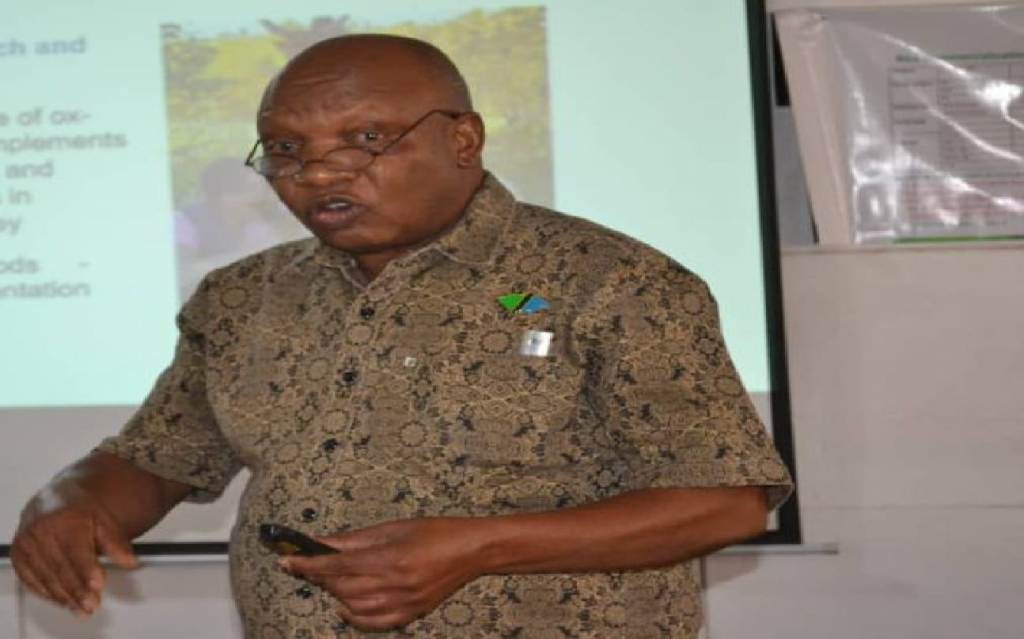
APRA researcher Prof.Ntengua S.Mdoe from COEBS, explaining the roles of livestock on rice commercialisation and participation of youth in commercial agriculture.
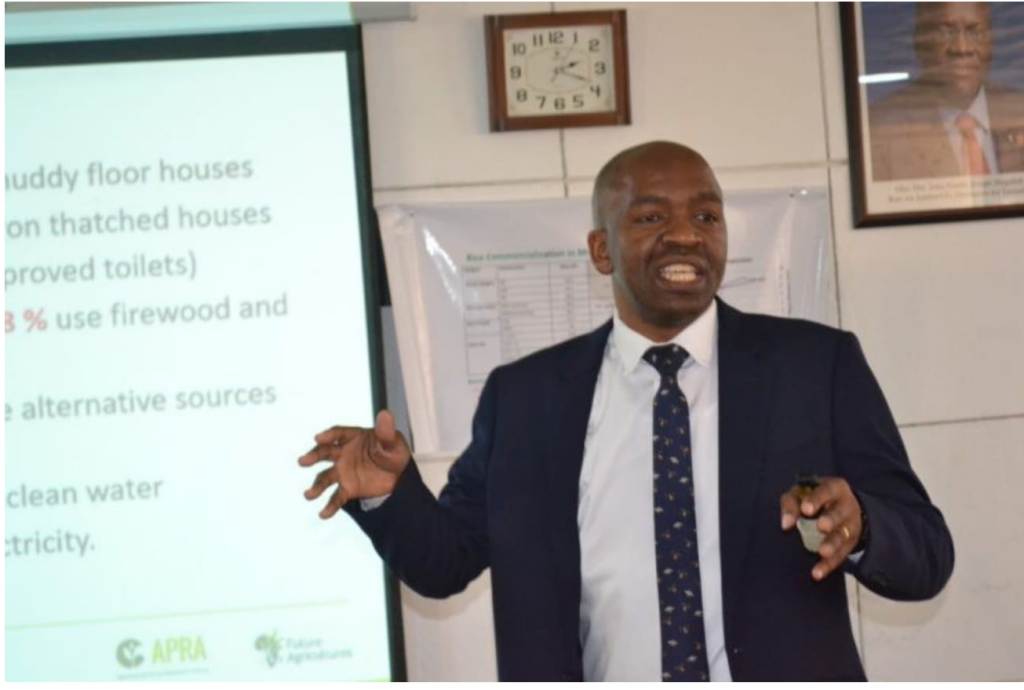
APRA researcher Dr.Christopher Magomba from COEBS, presenting the existing relation between livestock and sunflower commercialisation.

